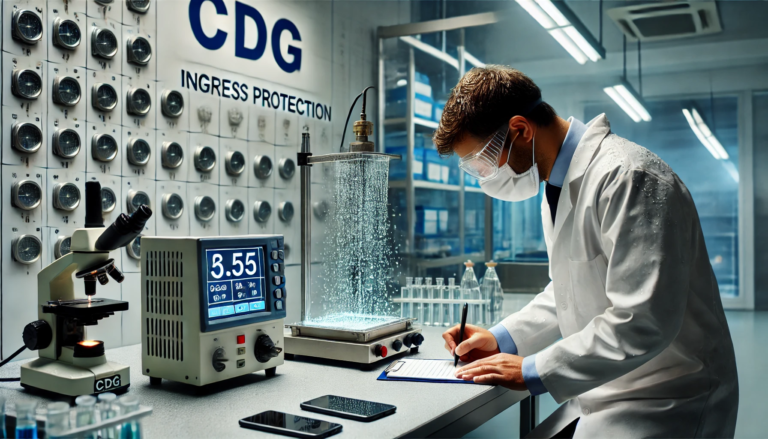In today’s technologically advanced world, protecting electronic devices from environmental elements is crucial. Whether it’s a smartphone exposed to rain or machinery operating in dusty conditions, ingress protection (IP) certification plays a vital role in ensuring reliability and durability. But which industries particularly benefit from IP certification? Let’s dive into the sectors where ingress protection is not just beneficial but essential.
Imagine a smartphone that functions perfectly in a torrential downpour or an industrial sensor that continues to operate flawlessly despite exposure to dust and debris. The secret to their resilience lies in ingress protection (IP) certification. This certification ensures that electronic devices are safeguarded against dust, water, and other foreign particles. In this blog, we’ll explore the diverse industries that rely heavily on IP certification to maintain operational integrity and safety
Industries That Require Ingress Protection Certification
Consumer Electronics
Examples: Smartphones, smartwatches, laptops
Application: Consumer electronics, particularly those used outdoors or in varying conditions, benefit greatly from IP certification. Devices with high IP ratings are resistant to water and dust, making them ideal for users who are constantly on the move or engaged in outdoor activities.
Tip: When choosing electronics, look for a high IP rating if you expect exposure to harsh environmental conditions.
Automotive Industry
Examples: Headlights, sensors, electronic control units (ECUs)
Application: Vehicles encounter a range of environmental conditions, from extreme heat and cold to rain and dust. IP certification ensures that automotive components, such as sensors and lighting systems, continue to function properly under these conditions, enhancing vehicle safety and performance.
Tip: For automotive components, ensure that the IP rating matches the environmental conditions the parts will be exposed to.
Industrial Manufacturing
Examples: Control panels, machinery, robotics
Application: In industrial settings, equipment often operates in dusty, dirty, or wet environments. IP certification helps in maintaining the longevity and reliability of machinery and control systems, reducing downtime and maintenance costs.
Tip: Regularly inspect and maintain equipment to ensure that its IP rating remains effective over time.
Aerospace
Examples: Avionics, communication devices, navigation systems
Application: Aerospace components face extreme conditions, including high-altitude pressures and varying temperatures. IP certification ensures that avionics and other critical systems remain operational despite exposure to harsh environmental factors.
Tip: In the aerospace sector, opt for components with the highest possible IP ratings to guarantee reliability.
Medical Devices
Examples: Diagnostic equipment, wearable health monitors, surgical instruments
Application: Medical devices must adhere to stringent hygiene and safety standards. IP certification helps ensure that devices are protected against dust and water, which is crucial for maintaining cleanliness and functionality in medical environments.
Tip: Verify that medical devices meet the required IP ratings for the specific conditions in which they will be used.
Military and Defense
Examples: Communication equipment, navigation systems, protective gear
Application: Military and defense applications often involve exposure to extreme environmental conditions. IP certification helps ensure that critical equipment remains functional and reliable, even in challenging situations.
Tip: Select equipment with high IP ratings to withstand harsh environments and operational stress.
Renewable Energy
Examples: Solar panels, wind turbine sensors, battery storage systems
Application: Renewable energy systems are exposed to the elements year-round. IP certification protects components from dust, moisture, and other environmental factors, ensuring optimal performance and longevity.
Tip: Choose components with appropriate IP ratings for the specific environmental conditions of your renewable energy installations.
Ingress protection certification is more than just a technical specification; it’s a crucial factor in ensuring the durability and functionality of electronic devices across various industries. From consumer electronics to industrial machinery and medical devices, IP certification plays a pivotal role in protecting equipment from environmental hazards. By understanding the importance of IP ratings and selecting components with suitable ratings for your specific needs, you can enhance the reliability and longevity of your devices.
Are you looking to ensure your products meet the highest standards of ingress protection? Contact us at CDG for expert guidance and certification services tailored to your industry needs. Let’s make sure your equipment stands up to the test of time and environment!


